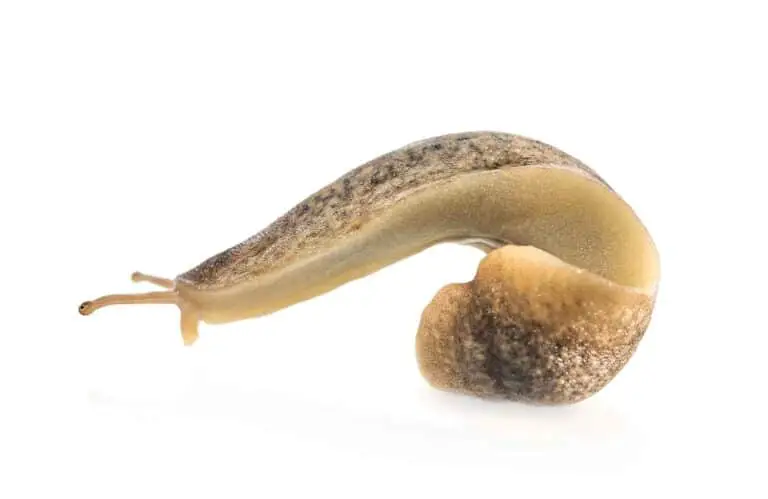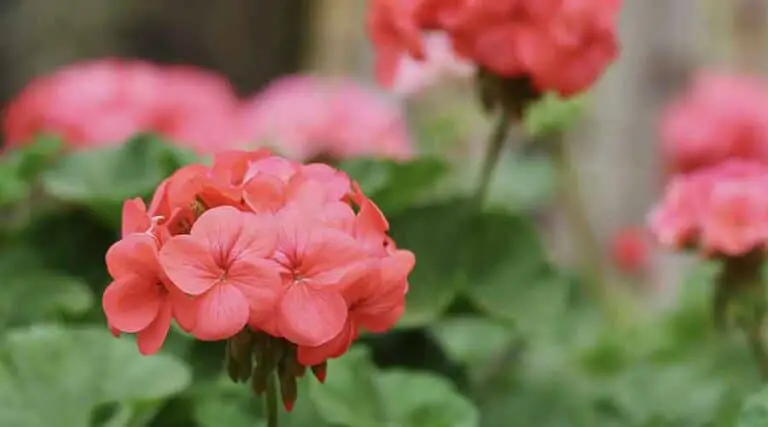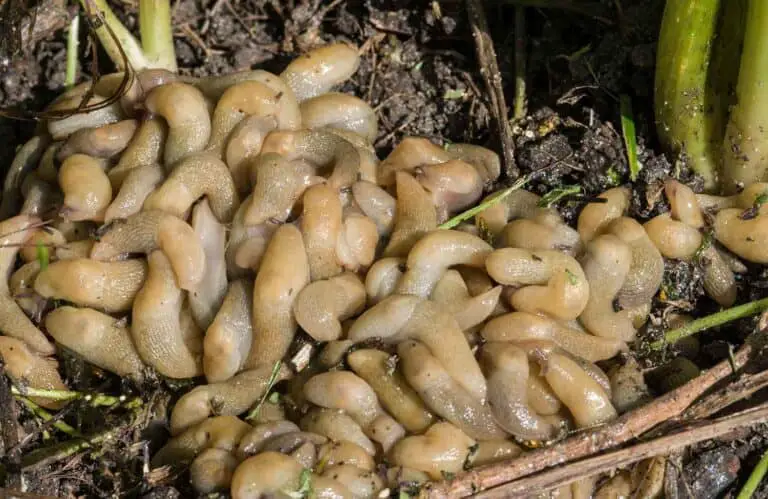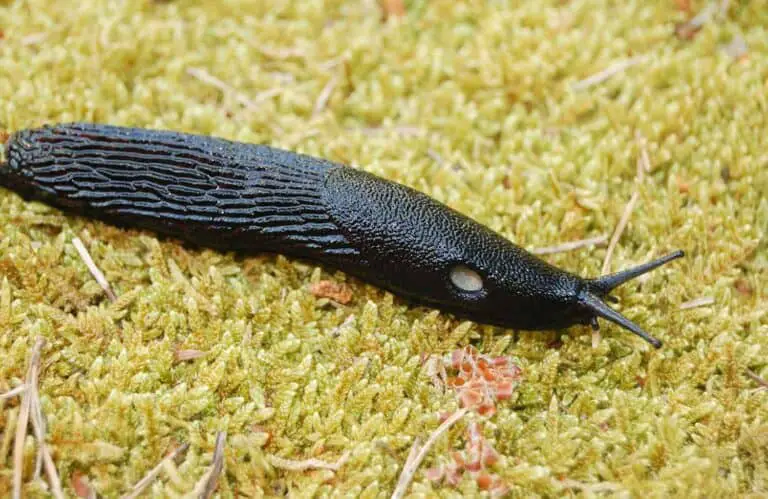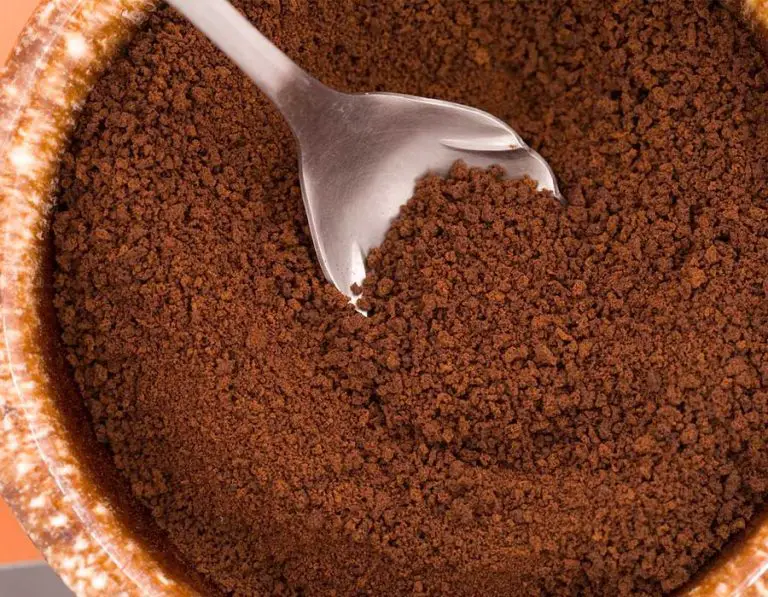Are Slugs Dangerous & Can They Bite?
Slugs are gastropods, a large class in the animal world. Found all over the world, slugs are known for eating fresh vegetation. They also eat decaying organic matter. Only rare species of slugs are carnivorous.
Most types of slugs found in the garden eat living and dead vegetation. They tend to surface in high numbers in rainy weather since they depend on high moisture to survive.
Slugs aren’t particularly dangerous to humans. While they can bite, this rarely happens. They are only dangerous when eaten without being cooked thoroughly as they can carry Rat lungworm parasites.
Slugs tend to invade gardens in their hundreds and many people aren’t sure how to handle them. Slugs remain largely enigmatic due to their solitary lifestyles away from the eyes of people.
Do slugs bite?
Slug bites are possible, but they are rare. One of the reasons these bites are possible is because slugs have mouths. Their small mouths are used for scrapping food which then enters their digestive system.
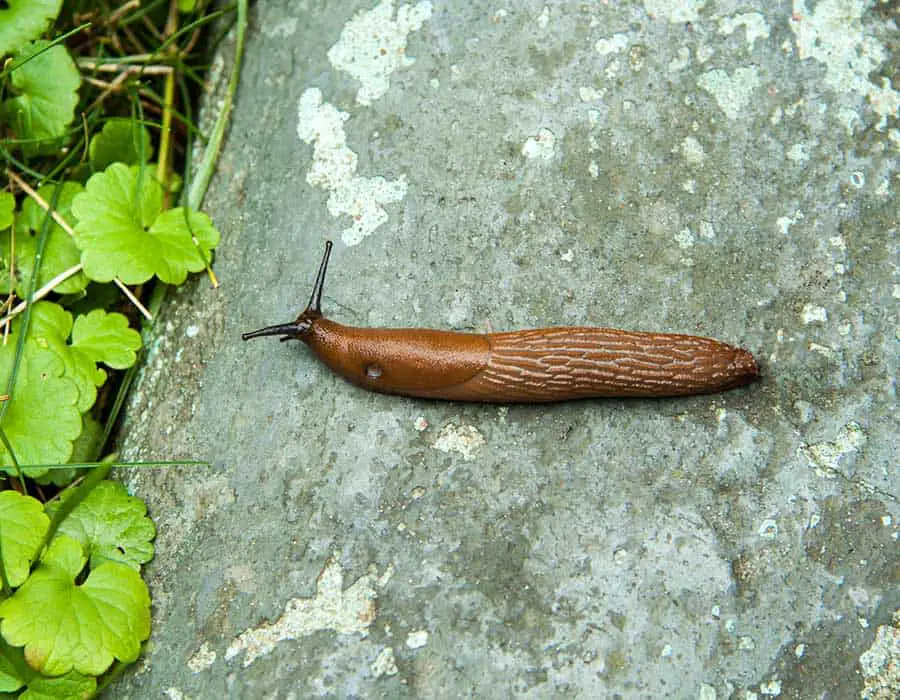
Slugs have around 27.000 teeth which scare some people. However, these are very small teeth slugs cannot count on to pierce human skin even if they decide to bite.
Slug bites are rarely reported as they don’t come with any symptoms even if they happen. A mild tingling-like sensation on the skin can be felt when slugs bite. In most cases, slugs won’t attempt to bite even when picked up by hand.
Are slugs dangerous?
While not particularly dangerous through biting, slugs can still be dangerous to humans on other levels. They carry parasites and they can spread these parasites. The good news is parasites slugs carry may only be transmitted to humans when the creatures are eaten.
Slugs are not aggressive towards humans
One of the common misconceptions about slugs is that they have a peaceful nature just because they move slowly. Slugs are very aggressive during the summer, but only among members of their species fighting for the same food.
They aren’t aggressive towards people. Slugs typically recognize humans as a threat and are afraid of people. They stiffen their bodies to make them harder to pick up when seeing people doing everything they can to avoid confrontation with people.
Slugs carry parasites
Slugs can sometimes carry parasitic nematodes such as rat lungworms. This parasite doesn’t grow in slugs but it is picked up from the feces of rats.
Slugs aren’t even a good host for this parasite. They are intermediate hosts or carrier hosts which can spread the parasite to animals or humans.
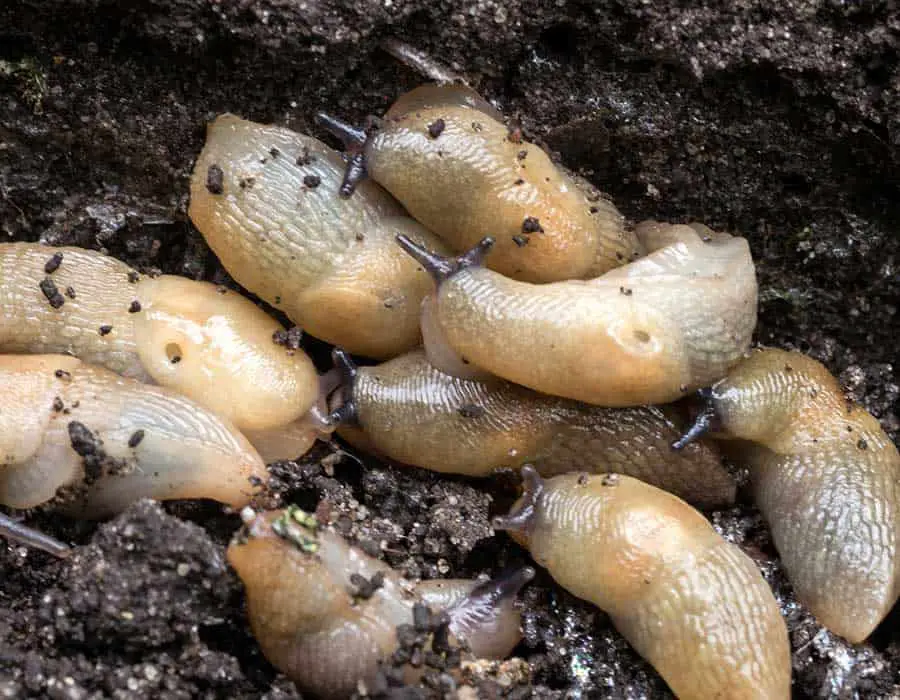
This parasite can require medical examination but its symptoms in humans are generally mild. However, people can only pick up this parasite by eating slugs. Eating any slug won’t give you this parasite as properly cooking slugs kill the parasite.
As a result, it’s rare for slugs to transmit parasites, viruses, and diseases to humans or it’s rare for them to do so while they aren’t eaten. Rate cases of Rat lungworm in people that come from slugs are based on people eating them without properly cooking the slugs.
Those who get the parasite experience different reactions. Some see no reactions at all. Others start to face meningitis as well as severe headaches. All of these reactions to getting the parasite from slugs can last up to 2 months.
Slugs aren’t poisonous
The idea that slugs are poisonous has been widespread through their consumption of dead vegetation. It’s one of the largest misconceptions about slugs and it can be seen as one of the biggest reasons people try to eliminate them.
However, slugs aren’t poisonous. They process the dead vegetation they eat without releasing any type of toxin or venom.
Growing up to a length of 10 inches, slugs are always subject to food availability when it comes to growth. This is why slugs might need to eat various types of vegetation to survive and grow.
Slug mucus isn’t harmful
Slugs have common mucus similar to the mucus seen on slugs. The primary role of this mucus is to prevent desiccation. This is a process in which the body of the slug loses so much water it starts to dry.
The role of the mucus also includes improving the capacity to move or even to stick to certain surfaces. While slugs leave mucus traces, these traces and the mucus itself are not poisonous.
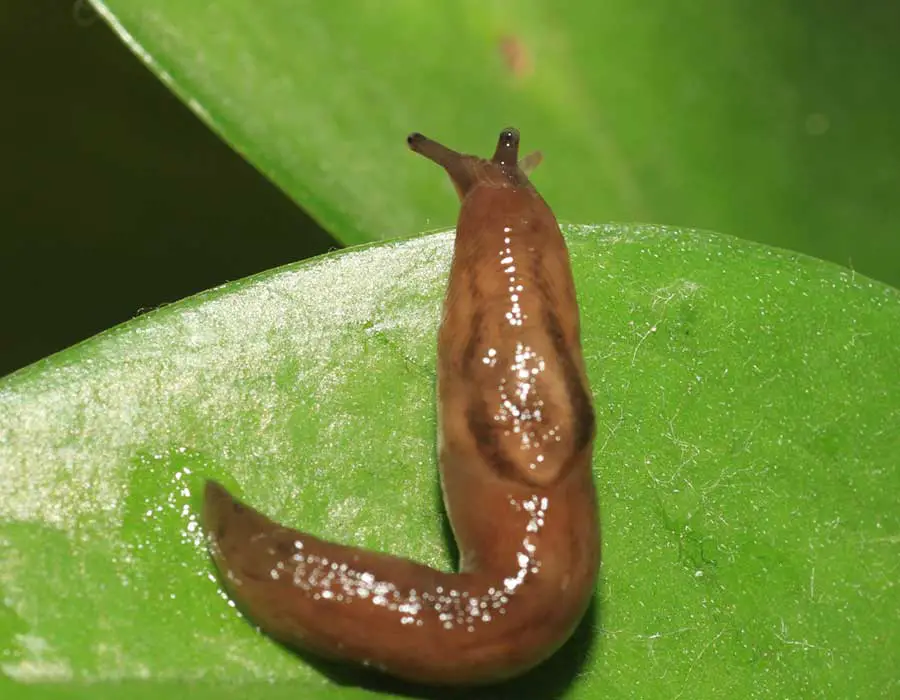
Mucus absorbs water and it might be difficult to wash off the hands once you handle slugs.
Mucus also has the role of keeping possible slug predators away. You cannot rule out mucus when it comes to a deterring factor either for how it tastes or how it looks when it comes to common predators of the species.
Slugs also use mucus to attach themselves to a surface such as a rock solidly. This prevents them from being quickly snatched in flight by predators such as birds. Mucus can also help stiffen the body which makes it more difficult to grab.
Touching slugs isn’t dangerous
Neither mucus nor the body of the slugs is dangerous to humans. You can touch a slug to remove it from plants and wash your hands afterward without any health implications.
Since slugs cannot bite, you can rest assured they won’t harm you whenever you pick them off fruits or vegetables. Still, it may be wise to adopt preventive measures to avoid all forms of contact with these pests.
Are slugs harmful to pets and animals?
Slugs might not be dangerous to humans who know to stay away. They can be dangerous to pets that don’t know how to react when seeing slugs.
Cats and dogs
Slugs can be dangerous to cats and dogs. They can even be lethal when a dog or a cat eats multiple slugs carrying parasites. Cats and dogs should be kept away from slugs as they always try to eat them.
Excessive drooling is one of the first signs that slugs and pets don’t mix. Cats and dogs can be seen drooling due to the mucus membrane of slugs. They can also vomit as mucus cannot be digested properly.
Cats and dogs eating slugs can suffer gastrointestinal issues. It’s time to visit a veterinarian if your pet has eaten slugs.
Chicken
Chicken are some of the most efficient birds against slugs. They can eat slugs without any side effects and they are used against slugs as a result. Many people know chickens quickly eliminate slugs around the yard whenever they have free access to them. You can let chicken free in the backyard after a rainy day to deal with any emerging slugs you don’t want to deal with.
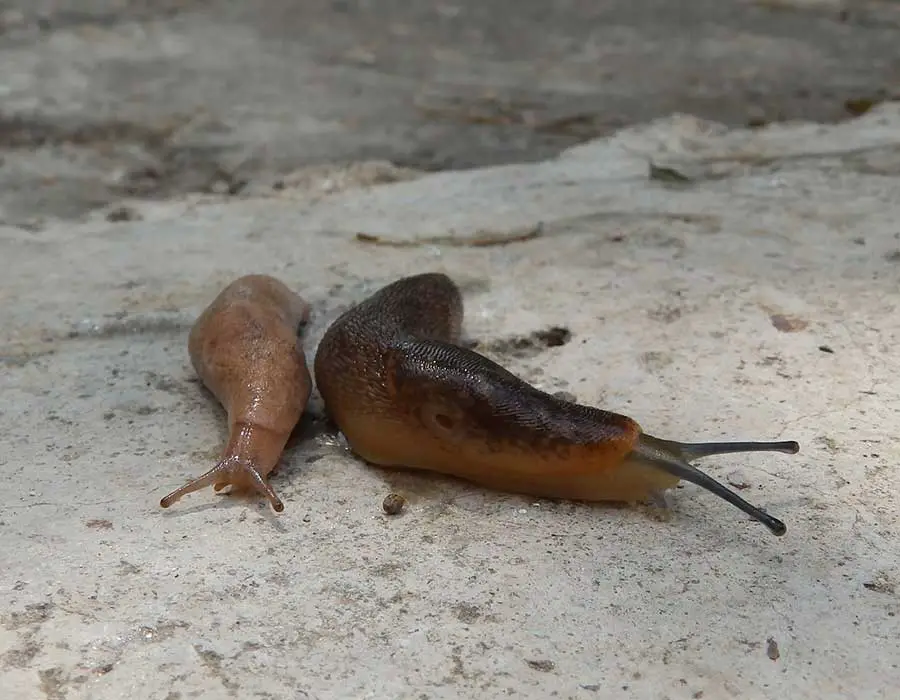
How do slugs defend themselves?
Slugs rely on hiding mechanisms to stay away from predators. They hide in the ground to avoid predation. Many slugs only come out after rain when it’s easier for them to move around since they need a lot of humidity.
Slugs also produce mucus many predators hate. These small pests have a gum-like mucus that tastes bad and which even makes some predators spit slugs out.
How do I know if I’ve been bitten by a slug?
Slug bites are very rare. Reports of slug bites aren’t seen in North America over the past few years. It’s with repeated exposure to a wide range of slugs that you can see these pests biting.
Gardening barefooted after the rain might expose your feed to slug bites. These bites can sometimes go undetected. The bites can also feel like tingly skin when they happen.
Do slugs have teeth?
Slugs have very small teeth. They are so small they cannot be seen with the naked eye. There are 27.000 microscopic teeth slugs have and use to cut through leaves and other vegetation. These teeth cannot be used for biting.
What makes people perceive slugs as dangerous?
Slugs aren’t dangerous but many people still see them as dangerous. The somewhat hidden solitary nature of these pests makes them be perceived either as off-putting or plain dangerous.
High reproductive rate
Slugs can reproduce with or without a mate. Up to 100 eggs can be laid by a single slug each year which means there are high chances of seeing many more slugs in the following years.
Slugs are very good at hiding. You rarely see them as they stay hidden away from dry areas in places with high humidity. This secretive nature makes some people assume slugs are dangerous.
Mucus
Slug mucus is off-putting and may wrongly be considered poisonous. Some people only see the mucus trails of slugs in the garden and assume their presence is high in the area. But slugs may use these trails as scent trails to make their way back to their hiding place once it has eaten.
Long lifespans
Slugs aren’t easy to eliminate as they live long lives. They can survive up to 6 years which means they can lay up to 600 eggs in their lifetime. Being very difficult to kill and surviving winters makes some people extremely cautious when it comes to dealing with slugs.

